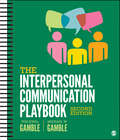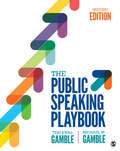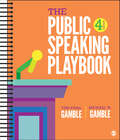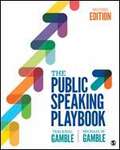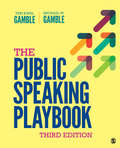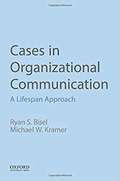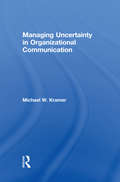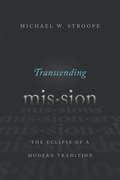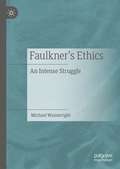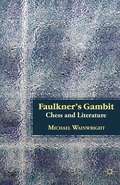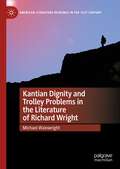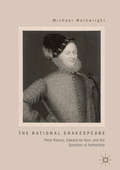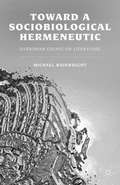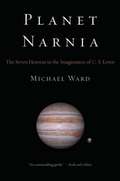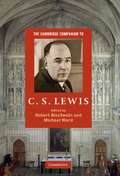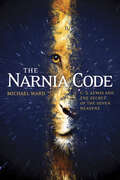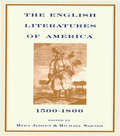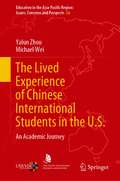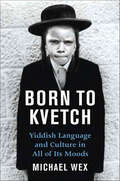- Table View
- List View
The Interpersonal Communication Playbook
by Teri Kwal Gamble Michael W. GambleWritten in a conversational style and presented in an innovative handbook format, The Interpersonal Communication Playbook empowers students to take an active role in the development of their communication skills in both physical and digital arenas. Bestselling authors Teri Kwal Gamble and Michael W. Gamble provide students with ample opportunities to make personal observations, examine personal experiences, and assess their personal growth across interpersonal contexts. The Second Edition features a new chapter on The Cultural Dynamics of Interpersonal Communication in response to the COVID-19 pandemic and lessons learned on adapting communication skills to changing conditions, ways to develop communication resiliency, and the value in practicing mindfulness. This title is accompanied by a complete teaching and learning package. Contact your SAGE representative to request a demo. Learning Platform / Courseware SAGE Vantage is an intuitive learning platform that integrates quality SAGE textbook content with assignable multimedia activities and auto-graded assessments to drive student engagement and ensure accountability. Unparalleled in its ease of use and built for dynamic teaching and learning, Vantage offers customizable LMS integration and best-in-class support. It’s a learning platform you, and your students, will actually love. Learn more. Assignable Video with Assessment Assignable video (available in SAGE Vantage) is tied to learning objectives and curated exclusively for this text to bring concepts to life. Watch a sample video now. LMS Cartridge: Import this title’s instructor resources into your school’s learning management system (LMS) and save time. Don’t use an LMS? You can still access all of the same online resources for this title via the password-protected Instructor Resource Site. Learn more.
The Interpersonal Communication Playbook
by Teri Kwal Gamble Michael W. GambleWritten in a conversational style and presented in an innovative handbook format, The Interpersonal Communication Playbook empowers students to take an active role in the development of their communication skills in both physical and digital arenas. Bestselling authors Teri Kwal Gamble and Michael W. Gamble provide students with ample opportunities to make personal observations, examine personal experiences, and assess their personal growth across interpersonal contexts. The Second Edition features a new chapter on The Cultural Dynamics of Interpersonal Communication in response to the COVID-19 pandemic and lessons learned on adapting communication skills to changing conditions, ways to develop communication resiliency, and the value in practicing mindfulness. This title is accompanied by a complete teaching and learning package. Contact your SAGE representative to request a demo. Learning Platform / Courseware SAGE Vantage is an intuitive learning platform that integrates quality SAGE textbook content with assignable multimedia activities and auto-graded assessments to drive student engagement and ensure accountability. Unparalleled in its ease of use and built for dynamic teaching and learning, Vantage offers customizable LMS integration and best-in-class support. It’s a learning platform you, and your students, will actually love. Learn more. Assignable Video with Assessment Assignable video (available in SAGE Vantage) is tied to learning objectives and curated exclusively for this text to bring concepts to life. Watch a sample video now. LMS Cartridge: Import this title’s instructor resources into your school’s learning management system (LMS) and save time. Don’t use an LMS? You can still access all of the same online resources for this title via the password-protected Instructor Resource Site. Learn more.
The Public Speaking Playbook
by Teri Kwal Gamble Michael W. GambleThe Public Speaking Playbook, Second Edition, shows students how to prepare, practice, and present their public speeches with the highest level of confidence. With a focus on actively building skills, Teri Kwal Gamble and Michael W. Gamble coach students in the fundamentals of the public speaking process, using brief interactive learning modules that allow students to practice—and improve—their public speaking. The highly anticipated Second Edition of this bestselling text features a more inclusive playbook analogy, exposing students to additional arenas—for example, politics, music, and business—to hone their skills and improve their performance. As students master the skills, they are also encouraged to think critically about what it means to “play fair” in public speaking, with a focus on diversity, ethics, and civic engagement.
The Public Speaking Playbook
by Teri Kwal Gamble Michael W. GambleThe Public Speaking Playbook, Second Edition, shows students how to prepare, practice, and present their public speeches with the highest level of confidence. With a focus on actively building skills, Teri Kwal Gamble and Michael W. Gamble coach students in the fundamentals of the public speaking process, using brief interactive learning modules that allow students to practice—and improve—their public speaking. The highly anticipated Second Edition of this bestselling text features a more inclusive playbook analogy, exposing students to additional arenas—for example, politics, music, and business—to hone their skills and improve their performance. As students master the skills, they are also encouraged to think critically about what it means to “play fair” in public speaking, with a focus on diversity, ethics, and civic engagement.
The Public Speaking Playbook
by Teri Kwal Gamble Michael W. GambleLearn to speak in public without breaking a sweat! The Public Speaking Playbook, Fourth Edition coaches students to prepare, practice, and present speeches at their highest level. With a focus on actively building skills, the Playbook guides students in the fundamentals of the public speaking process, and uses frequent interactive exercises that allow students to practice—and improve—their public speaking. Students want to put their skills into practice quickly, so the Playbook gives them the essentials in brief learning modules that focus on skill-building through independent and collaborative learning activities. As students master their skills, they are also encouraged to think critically about what it means to "play fair" in your public speaking—with a focus on diversity, ethics, and civic engagement.
The Public Speaking Playbook
by Teri Kwal Gamble Michael W. GambleLearn to speak in public without breaking a sweat! The Public Speaking Playbook, Fourth Edition coaches students to prepare, practice, and present speeches at their highest level. With a focus on actively building skills, the Playbook guides students in the fundamentals of the public speaking process, and uses frequent interactive exercises that allow students to practice—and improve—their public speaking. Students want to put their skills into practice quickly, so the Playbook gives them the essentials in brief learning modules that focus on skill-building through independent and collaborative learning activities. As students master their skills, they are also encouraged to think critically about what it means to "play fair" in your public speaking—with a focus on diversity, ethics, and civic engagement.
The Public Speaking Playbook (Second Edition)
by Teri Kwal Gamble Michael W. GambleHow exciting it is for us to have completed the second edition of The Public Speaking Playbook. We hope you find it even more engaging and useful than this text's first edition.
The Public Speaking Playbook: The Public Speaking Playbook 2e + Speechplanner
by Teri Kwal Gamble Michael W. GambleThe Public Speaking Playbook shows students how to prepare, practice, and present their public speeches with the highest level of confidence. With a focus on actively building skills, Teri Kwal Gamble and Michael W. Gamble coach students in the fundamentals of the public speaking process, using engaging learning modules that allow students to practice—and improve—their public speaking.
The Public Speaking Playbook: The Public Speaking Playbook 2e + Speechplanner
by Teri Kwal Gamble Michael W. GambleThe Public Speaking Playbook shows students how to prepare, practice, and present their public speeches with the highest level of confidence. With a focus on actively building skills, Teri Kwal Gamble and Michael W. Gamble coach students in the fundamentals of the public speaking process, using engaging learning modules that allow students to practice—and improve—their public speaking.
Cases in Organizational Communication: A Lifespan Approach
by Ryan S. Bisel Michael W. KramerCase Studies in Organizational Communication: A Lifespan Approach is the first collection of its kind that is designed to complement a textbook (the editors' Organizational Communication: A Lifespan Approach, OUP, 2016). Bringing concepts to life by engaging readers' minds, memories, and emotions, this volume provides students and instructors with a wealth of opportunities to see, hear, and feel how communication can and does shape organizations and the experiences of people within them.
Managing Uncertainty in Organizational Communication (Routledge Communication Series)
by Michael W. KramerIn this book, Michael W. Kramer applies uncertainty reduction theory (URT)--a key theory in current communication scholarship--to the context of organizational communication. Examining URT and the range of research applicable to organizational settings, Kramer proposes a groundbreaking theory of managing uncertainty (TMU), which synthesizes prior research while also addressing its criticisms. Examples are provided to illustrate the principles of the TMU at both the individual and collective (group/organizational) levels of analysis. Original studies based on the theory show that it provides a useful extension of URT, addressing some concerns raised by critics of that earlier model. Kramer illustrates that, as a model in progress, TMU will change as new research and insights build upon it. Managing Uncertainty in Organizational Communication assists readers in understanding and researching uncertainty in communication, which encourages additional changes and improvements to the model. It is of primary interest to scholars, researchers, and practitioners in organizational, interpersonal, and group communication.
Transcending Mission: The Eclipse of a Modern Tradition
by Michael W. StroopeMission, missions, missional, and all its linguistic variations are part of the expanding vocabulary and rhetoric of the contemporary Christian missionary enterprise. Its language and assumptions are deeply ingrained in the thought and speech of the church today. Christianity is a missionary religion and faithful churches are mission-minded. What's more, in telling the story of apostles and bishops and monks as missionaries, we think we have grasped the true thread of Christian history. But what about those odd shapes, those unsettling gaps and creases in the historical record? Is the language of mission so clearly evident across the broad reaches of time? Is the trajectory of mission really so explicit from the early church to the present? Or has the modern missionary enterprise distorted our view of the past? As with every reigning paradigm, there comes a point when enough questions surface to beg for a close and critical look, even when it may seem transgressive to do so. In this study of the language of mission—its origin, development, and application—Michael Stroope investigates how the modern church has come to understand, speak of, and engage in the global expansion of Christianity. There is both surprise and hope in this tale. And perhaps the beginnings of a new conversation.
Faulkner’s Ethics: An Intense Struggle
by Michael WainwrightThis book offers the first comprehensive investigation of ethics in the canon of William Faulkner. As the fundamental framework for its analysis of Faulkner’s fiction, this study draws on The Methods of Ethics, the magnum opus of the utilitarian philosopher Henry Sidgwick. While Faulkner’s Ethics does not claim that Faulkner read Sidgwick’s work, this book traces Faulkner’s moral sensitivity. It argues that Faulkner’s language is a moral medium that captures the ways in which people negotiate the ethical demands that life places on them. Tracing the contours of this evolving medium across six of the author’s major novels, it explores the basic precepts set out in The Methods of Ethics with the application of more recent contributions to moral philosophy, especially those of Jacques Derrida and Derek Parfit.
Faulkner’s Gambit
by Michael WainwrightThis book offers the first full-length study of the chess structures, motifs, and imagery in William Faulkner's Knight's Gambit . Wainwright looks at the importance of chess as a literary device and examines the structural analogy drawn between the game and linguistics by Ferdinand de Saussure.
Kantian Dignity and Trolley Problems in the Literature of Richard Wright (American Literature Readings in the 21st Century)
by Michael WainwrightThis book examines the literature of African-American author Richard Wright and the philosophy of Immanuel Kant, arguing that Wright was not only the foremost proponent of minoritarian protest literature, but also a groundbreaking minoritarian exponent of philosophical literature. In presenting this argument, the volume defends trolley problems from the criticism that some philosophers level against them by promoting their use as an interpretive tool for literary scholars. Starting with Martha C. Nussbaum’s interventions in literary theory concerning Henry James and perceptive equilibrium, this book draws on the philosophical thoughts of her contemporaries—Philippa Foot, John Rawls, Judith Jarvis Thomson, and Derek Parfit—to analyze Uncle Tom’s Children, especially “Down by the Riverside,” alongside other works by Wright. This approach emphasizes Wright’s recognition of the importance and integrity of Kant’s concept of dignity.
The Rational Shakespeare: Peter Ramus, Edward de Vere, and the Question of Authorship
by Michael WainwrightThe Rational Shakespeare: Peter Ramus, Edward de Vere, and the Question of Authorship examines William Shakespeare’s rationality from a Ramist perspective, linking that examination to the leading intellectuals of late humanism, and extending those links to the life of Edward de Vere, Seventeenth Earl of Oxford. The application to Shakespeare’s plays and sonnets of a game-theoretic hermeneutic, an interpretive approach that Ramism suggests but ultimately evades, strengthens these connections in further supporting the Oxfordian answer to the question of Shakespearean authorship.
Toward a Sociobiological Hermeneutic
by Michael WainwrightThis book draws on post-Darwinian advances in scientific disciplines to reanalyze canonical works of literature. This wide-ranging analysis includes studies of the works of Oscar Wilde, Sophocles, Shakespeare, Giovanni Boccaccio, Theodore Dreiser, John Roderigo Dos Passos, and William Faulkner.
Planet Narnia: The Seven Heavens in the Imagination of C. S. Lewis
by Michael WardOver the years, scholars have labored to show that C. S. Lewis's famed Chronicles of Narnia have an underlying symbolic coherence, pointing to such possible unifying themes as the seven sacraments, the seven deadly sins, and the seven books of Spenser's Faerie Queene. None of these explanations has won general acceptance and the nature of Narnia's symbolism has remained a puzzle. Michael Ward has finally solved the mystery. In Planet Narnia, he argues convincingly that medieval cosmology, a subject which fascinated Lewis throughout his life, provides the imaginative key to the seven novels. Drawing on the whole range of Lewis's writings (including previously unpublished drafts of the Chronicles), Ward shows that the Narnia stories were designed to express the characteristics of the seven medieval planets--the Sun, the Moon, Mars, Mercury,Venus, Jupiter and Saturn--planets which Lewis described as "spiritual symbols of permanent value" and "especially worthwhile in our own generation." Using these seven symbols, Lewis secretly constructed the Chronicles so that the story-line in each book, countless points of ornamental detail, and, most important, the portrayal of the Christ-figure of Aslan, all serve to communicate the governing planetary personality. For instance, in The Voyage of the "Dawn Treader," the sun is the prevailing planetary spirit: magical water turns things to gold, the solar metal; Aslan is seen flying in a sunbeam; and the sun's rising place is actually identified as the destination of the plot: "the very eastern end of the world."Planet Narnia is a ground-breaking study that will provoke a major reassessment not only of the Chronicles, but of Lewis's whole literary and theological outlook, revealing him to be a much subtler writer and thinker than has previously been recognized.
The Cambridge Companion to C.S. Lewis
by Michael Ward Robert MacswainA distinguished academic, influential Christian apologist, and best-selling author of children's literature, C. S. Lewis is a controversial and enigmatic figure who continues to fascinate, fifty years after his death. This 2010 Companion is a comprehensive single-volume study written by an international team of scholars to survey Lewis's career as a literary historian, popular theologian, and creative writer. Twenty-one expert voices from Oxford, Cambridge, Princeton, and Wheaton, among many other places of learning, analyze Lewis's work from theological, philosophical, and literary perspectives. Some chapters consider his professional contribution to fields such as critical theory and intellectual history, while others assess his views on issues including moral knowledge, gender, prayer, war, love, suffering, and Scripture. The final chapters investigate his work as a writer of fiction and poetry. Original in its approach and unique in its scope, this Companion shows that C. S. Lewis was much more than merely the man behind Narnia.
The Narnia Code: C. S. Lewis and the Secret of the Seven Heavens
by Michael WardMillions of readers have been captivated by C. S. Lewis’s famed Chronicles of Narnia, but why? What is it about these seven books that makes them so appealing? For more than half a century, scholars have attempted to find the organizing key―the “secret code”―to the beloved series, but it has remained a mystery. Until now. In The Narnia Code, Michael Ward takes the reader through each of the seven Narnia books and reveals how each story embodies and expresses the characteristics of one of the seven planets of medieval cosmology―Jupiter, Mars, Sol, Luna, Mercury, Venus and Saturn―planets which Lewis described as “spiritual symbols of permanent value.” How does medieval cosmology relate to the Christian underpinnings of the series? How did it impact Lewis’s depiction of Aslan, the Christlike character at the heart of the books? And why did Lewis keep this planetary inspiration a secret? Originally a ground-breaking scholarly work called Planet Narnia, this more accessible adaptation will answer all the questions.
The English Literatures of America: 1500-1800
by Michael Warner Myra JehlenThe English Literatures of America redefines colonial American literatures, sweeping from Newfoundland and Nova Scotia to the West Indies and Guiana. The book begins with the first colonization of the Americas and stretches beyond the Revolution to the early national period. Many texts are collected here for the first time; others are recognized masterpieces of the canon--both British and American--that can now be read in their Atlantic context. By emphasizing the culture of empire and by representing a transatlantic dialogue, The English Literatures of America allows a new way to understand colonial literature both in the United States and abroad.
Hinter den Nachrichtenbildern: Warum wir unseren Augen nicht (immer) trauen können
by Michael Wegener Mirco LiefkeNachrichtenbilder prägen unsere Vorstellung der Wirklichkeit – doch wie entstehen sie? Dieses Buch nimmt die Stärken und Schwächen des globalen Nachrichtenjournalismus unter die Lupe und geht Fragen nach, die in unserer Informationsgesellschaft von entscheidender Bedeutung sind: Warum sehen wir aus manchen Regionen dieser Welt immer dieselben Nachrichtenbilder - und aus anderen gar keine? Wie arbeiten die großen Bildnachrichtenagenturen und wie bestimmen sie so die Bilder in Sendungen wie „Tagesschau“ und „heute-Nachrichten“? Wie wird in den Redaktionen entschieden, welche Bilder gesendet werden und wie wird geprüft, ob diese auch wirklich authentisch sind? Fragen wie diese beantworten die Autoren vor dem Hintergrund bekannter und weniger bekannter Nachrichtengeschichten. Auf anschauliche und zugleich theoretisch reflektierende Weise vermitteln sie, wie Redaktionen tagtäglich auf Wahrheitssuche gehen und zeigen auf, wie wirtschaftliche und politische Zwänge unser Bild der Welt trüben können.
The Lived Experience of Chinese International Students in the U.S.: An Academic Journey (Education in the Asia-Pacific Region: Issues, Concerns and Prospects #56)
by Yalun Zhou Michael WeiThis book marks a departure from traditional assumptions concerning the deficiencies of Chinese international students in terms of learning and adapting. It employs phenomenological narrative inquiry and a small culture approach to investigate the evolved, fluid experience of pursuing a graduate degree in the U.S. at Blue Fountain University (a pseudonym for a mid-western university).Adopting an interdisciplinary perspective, this book addresses two fundamental questions: What study abroad is and what study abroad counts? The sociocultural dimensions that shape the cross-border degree seeking endeavors inform stakeholders what works for Chinese international students’ successful pursuits as EFL learners and ESL users and what could be improved. This book shares thoughts on the implications and impact of educational contexts to stakeholders at normal and dynamic contexts interrupted by global pandemic outbreak. It contributes to the understanding of the internationalization of the host institute and the EFL education reform efforts (policy making, teacher education, and classroom practice) in China (and in Asia at large).
Born to Kvetch: Yiddish Language and Culture in All Its Moods
by Michael Wex“Wise, witty and altogether wonderful. . . . Mr. Wex has perfect pitch. He always finds the precise word, the most vivid metaphor, for his juicy Yiddishisms.” —William Grimes, The New York TimesAs the main spoken language of the Jews for more than a thousand years, Yiddish has had plenty to lament, plenty to conceal. Its phrases, idioms, and expressions paint a comprehensive picture of the mind-set that enabled the Jews of Europe to survive a millennium of unrelenting persecution: they never stopped kvetching—about God, gentiles, children, food, and everything (and anything) else. They even learned how to smile through their kvetching and express satisfaction in the form of complaint.In Born to Kvetch, Michael Wex looks at the ingredients that went into this buffet of disenchantment and examines how they were mixed together to produce an almost limitless supply of striking idioms and withering curses (which get a chapter all to themselves). Born to Kvetch includes a wealth of material that’s never appeared in English before. You’ll find information on the Yiddish relationship to food, nature, divinity, humanity and even sex.This is no bobe mayse (cock-and-bull story) from a khokhem be-layle (idiot, literally a “sage at night” when no one’s looking), but a serious yet fun and funny look at a language that both shaped and was shaped by those who spoke it. From tukhes to goy, meshugener to kvetch, Yiddish words have permeated and transformed English as well.“This treasure trove of linguistics, sociology, history and folklore offers a fascinating look at how, through the centuries, a unique and enduring language has reflected an equally unique and enduring culture.” —Publishers Weekly, starred review
